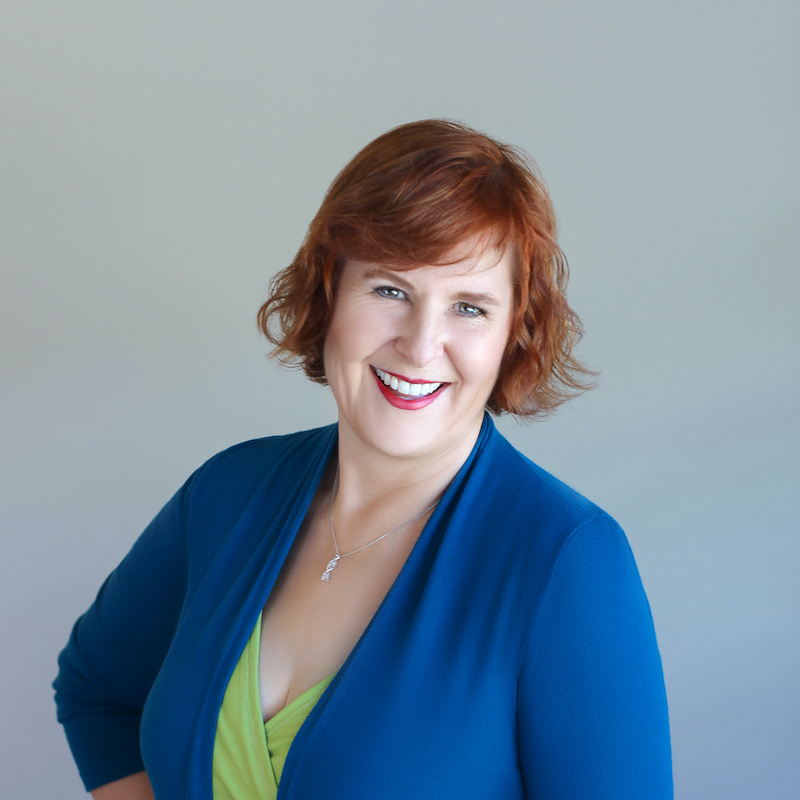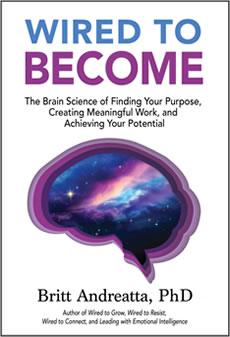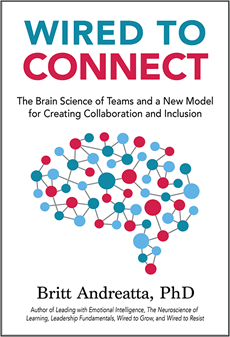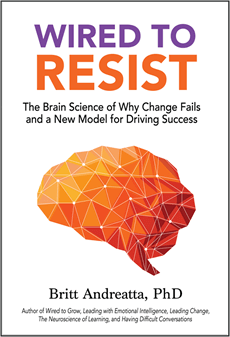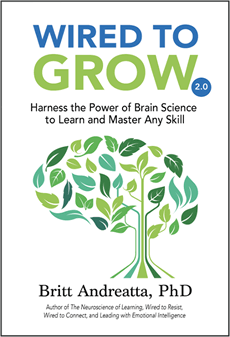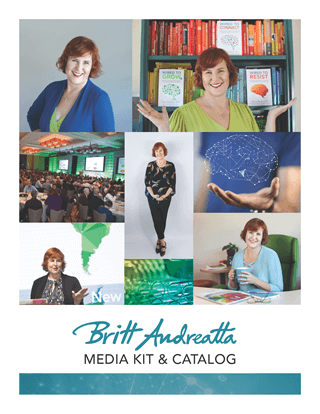This website uses cookies so that we can provide you with the best user experience possible. Cookie information is stored in your browser and performs functions such as recognising you when you return to our website and helping our team to understand which sections of the website you find most interesting and useful.
Media Contact + Press Kit
Media Form
If you are a writer, editor, or producer and would like to request an interview for a story, podcast, or video with Britt Andreatta, please submit the form below to help us better address your request.
Please note that due to the volume of requests we receive, we may take up to one week to respond to your inquiry.
Britt Andreatta's Official Bio
Dr. Britt Andreatta is an internationally recognized thought leader who uses her background in leadership, neuroscience, psychology, and education to create science-based solutions for today’s workplace challenges. Britt is the CEO of Brain Aware Training and former CLO for Lynda.com (LinkedIn Learning). She has over 10 million views worldwide of her online courses and is the author of several best-selling books on the brain science of success including Wired to Grow, Wired to Resist, Wired to Connect, and Wired to Become. In 2024, she was awarded the ATD Thought Leader Award. She has also been named as a Top 10 Influencer in Learning and a Top 20 Influencer for Leadership Development. Dr. Andreatta regularly consults with organizations on leadership development and learning strategy.
Approved Book Covers
Media Kit + Social Media
Interview Questions
Britt’s research and work cover a wide range of key topics including change, teams, collaboration, innovation, emotional intelligence, mindfulness, employee engagement, and cultural competence, to name a few. Below are some sample interview questions based on her recent books.
General
- Brain science is a field that intimidates many people. Why is it your go-to source?
- How can someone get in touch with you?
Purpose
- What prompted you to write Wired to Become at this time?
- What is the difference between happiness and purpose?
- What connections exist between finding purpose or meaning and our physical and mental health?
- How can we evaluate or assess whether our work is meaningful or not?
- You mention that there are paradoxes with purpose. What are some common paradoxes?
- What are some of the myths that people believe about purpose?
- What does it look like when someone is fulfilling their potential? How can you encourage or challenge others to do so?
- The book is filled with stories from people around the world. Why did you choose to include personal stories and were there any common themes?
- What can managers do to create more meaning and purpose for their employees?
- You say that purpose-driven organizations will become the norm. What are the benefits for leaders to shift their organizations?
Change
- What has your research uncovered about using brain science to enhance change management and adaptability to change?
- Organizational change has always existed but what's new and different about change now?
- Say more about change fatigue and burnout -- how do they impact people at work?
- What are the biggest drivers of change in organizations today?
- Harvard Business Review claims that 50-70% of change initiatives fail. How might a brain-based approach shift that?
- It seems like mergers & acquisitions are a special type of change. What insights can you research provide about organizations going through M&As?
- Can you give us 3-5 practical strategies for driving successful change?
Teams
- What has your research uncovered about using brain science to enhance the performance of teams in the workplace?
- What separates the best performing teams from the medium and poor performing ones?
- How does our brain sync up with others during collaboration? And how can we help facilitate better collaboration?
- How does our brain develop a sense of belonging or inclusion in a group?
- You make a powerful case for in-person exchanges but what does that mean for remote employees?
- Can you give us 3-5 practical tips for increasing the effectiveness of all teams in your organization?
Learning/Growth
- From a neuroscience perspective, what do we know about learning that we didn’t know 5 or 10 years ago?
- What are the benefits of microlearning?
- What are some ways organizations can create blended learning or the flipped classroom?
- You talk about the value of failure—how can organizations create environments where it’s safe to take risks and make mistakes?
- You created the Growth Culture Model and the 3-Phase Model of Learning. How the average person use these in their everyday life?
- You talk about the power of the growth mindset (coined by Dr. Carol Dweck). Can any skill be learned by anyone or are there some limitations?
Mindfulness
- What is the neuroscience of mindfulness?
- What is the difference between mindfulness and meditation?
- What are some of the benefits of mindfulness for the average person?
- Why should organizations invest in providing mindfulness for their employees?
- You have shared that you reluctantly began a meditation practice. Tell us more.
- If someone wanted to give it a try, what suggestions or tips would you have?
Personal/Fun
- What are you working on right now that has you most excited?
- What is your favorite… quote, book, tool, habit, piece of advice you received, dessert, movie, etc.?
- You are a parent/you have a daughter. How does your work shape your parenting?
- You were a competitive ice skater for many years. How does that background shape your current work?
- Can you tell us a couple of things that are on your bucket list?
- What’s a challenge that has you stumped right now?
- You talk about rewards. How do you reward yourself when you finish a book or a big project?

